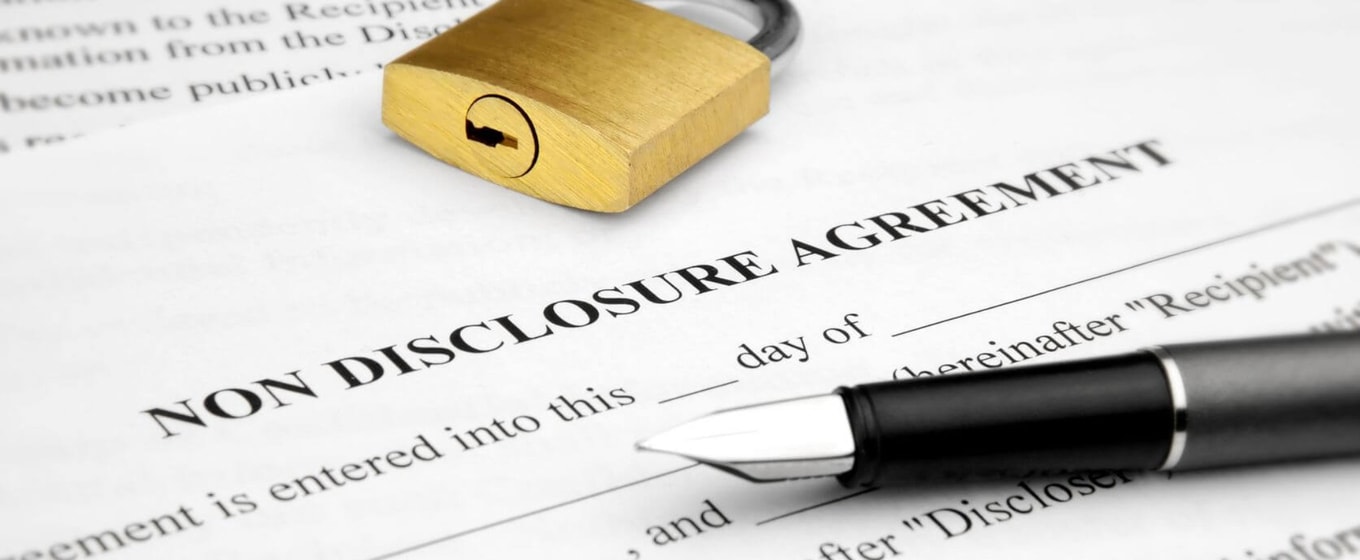Non-disclosure agreements (NDAs) are commonplace especially in the creative industry where freelancers often work with agencies. Whilst you may be happy to sign on the dotted line, do you know what you are actually signing?
Why would an NDA be requested?
NDAs seek to provide reassurance that a project’s details will not be leaked to a third party. These contracts effectively allow a complete lock-down on what can and cannot be released prior to a certain date, time or event. When you are asked to sign one, it is not because the company is deliberately being difficult but because they wish to protect the project and not lose the commercial edge.
What is the NDA actually restricting?
This is key. You need to establish what the NDA is seeking to restrict. They are commonly used in the creative industry and feature around Intellectual Property rights. Therefore, as the old adage states, knowledge is power in these situations; the more you understand the better your position.
For example, if you are bidding for an advertising campaign to help promote a local rugby team during the Rugby World Cup, the club may seek an NDA. This is perfectly legitimate and will stop you from telling people of your involvement. Be warned – in some cases you cannot even tell your partner or your mum.
Commonly, NDAs seek to restrict any publication about your involvement, the content you are creating, the colour palette used and any additional third parties working on the project. However, these terms can be extremely bespoke and cover all sorts of eventualities, time scales and, even publication rights on your own website.
Understand the terms
You need to fully comprehend the terms imposed on you. If you are unsure what the NDA is seeking to restrict, you are perfectly within your rights to enter discussions about the terms and ask the client what they are seeking.
Be aware that larger companies may not be as open to negotiation on the terms, but this is not always the case. If, even after a discussion with the company, you are still unsure, it may be best to seek legal advice to provide peace of mind. If you do not have a solicitor you regularly use, go to the handy Find a Solicitor Tool on the Law Society Website.
What happens if you breach the NDA?
If you, even mistakenly, break the terms of an NDA you will be in breach of contract. Whilst these agreements seem on their surface to be simply a reassurance that you are trustworthy, they are legally binding. Therefore, if you let the cat out of the bag, you are in serious trouble and risk a possibly large bill for damages and legal costs if they sue you.
Protection and competitive edge
Never fear these clauses. Whilst they may restrict you, it also protects the competitive edge of the whole project. Do not feel affronted that the client requesting an NDA seems to think that you are not trustworthy. These terms offer additional comfort for the client and actually work both ways: if want to protect a specific process or you can request an NDA is utilised.
More information on NDAs is in our article 'Introduction to Non-Disclosure Agreements’.






These cookies are set by a range of social media services that we have added to the site to enable you to share our content with your friends and networks. They are capable of tracking your browser across other sites and building up a profile of your interests. This may impact the content and messages you see on other websites you visit.
If you do not allow these cookies you may not be able to use or see these sharing tools.